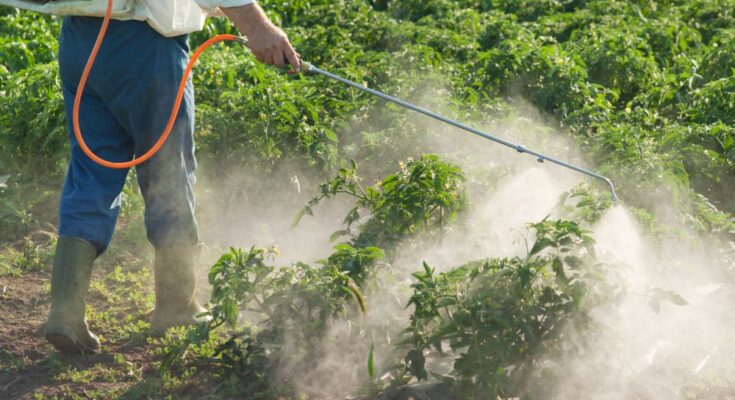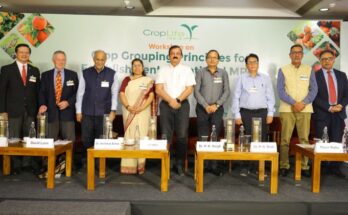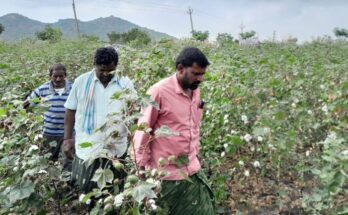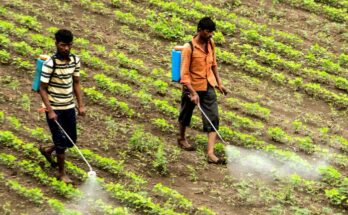There is an urgent need to set up a forum to disseminate information on invasive pests that harm India’s food security, Union Minister of State for Agriculture and Farmers Welfare, Parshottam Rupala said at an ASSOCHAM webinar held Monday.
“The need of the hour is a long term policy which should not treat these invasive pests as emergency,” said Rupala in an online interaction on Invasive and Migratory Pest Management: Challenges and Way Forward organised by ASSOCHAM.
He also urged the industry to suggest a way out to curb the sales of spurious pesticides. The minister stated that the problem lies behind incentive scheme but how it can harm the farmers’ land and their productivity becomes the actual problem and needs to be stopped.
“International knowledge and experience is required to stop these pests,” said Rupala adding that strength and lacuna of the industry should also be looked at.
Sharing his views, ASSOCHAM secretary general, Deepak Sood focused on the importance of agriculture sector in generating employment and income generation and ensuring India’s food security. He said that the invasive pest can alter the water levels, change environment conditions and cause various diseases. The reforms that have taken place under the current government have helped this sector develop further.
Raju Kapoor, Director, Corporate Affairs, FMC Corporation, shared a presentation with audience which included the various pests and the way they entered India in last 15 years. He mentioned the programme SAFFAL (Safeguarding Agriculture & Farmers against Fall Armyworm) launched by FMC which provided a case study on Fall Armyworm management in India. He said that to deliver sustainable solutions to farmers it is necessary to create awareness, have capacity building, provide resources and a much needed partnership. He said that communication is the key including media awareness and dissemination of collaterals. He focused on the transparency of the process, it should be inclusive, science driven and collaborative.
Sagar Kaushik, COO, UPL said that it is important to understand the role of agrochemicals in safeguarding food crops and environmental safety. He said that not only these pests are harmful when they enter India but when agriculture products are exported these might be detrimental to other parts of the world as well. He suggested the MoS to form a committee in association of Ministry of Agriculture to allow a proper dissemination of information regarding these pests. He emphasised that early surveillance can be one of the ways to curb the growth of these pest. He said that we need to be more prepared to handle such pests rather than treating it as an emergency situation always which will be possible by proper collaboration and proper information.
RK Aggarwal, Chairman, Dhanuka Agritech said that there is no other pest bigger than COVID. He said that only one pest can bring the productivity down by 50 percent and now we have a series of these pests so the need of the hour is to create awareness and understand the nature of these pests. Few points that he mentioned included the importance of agriculture inputs including pesticides and the need to register more pesticides by easing the process of registration. It takes time and money to register a new pesticide and the process is really cumbersome which should be eased, he added. He mentioned that 25-30 percent pesticides are spurious and a few reports suggest the same which proves that there is an underlying problem in this sector which needs to be solved.
Rahoul Sawani, MD- South Asia, Corteva Agrisciences, said that the country has faced a lot of challenges this year but agriculture sector showed grown in first quarter even when the economy was bad. He said that our food system is very fragile because we react rather than being proactive but it is necessary to build these reactions into the system. He mentioned that innovation is the solution for many things and accelerating the use of these innovative products to India can help fight these invasive and migratory pests. Proactive engagement is required. He mentioned the importance of Integrated Pest Management (IPM) and the ways technologies can be used to give farmers control over the situation for a longer period of time.
Subhash Chandra, Professor and Principal Scientist, ICAR – Indian Agricultural Research Institute (IARI) said that these invasive pests can come through import, quarantine negligence and many other ways. They leave behind their environmental resistance and development resistance in new area making it more difficult to get rid of them. Strengthening international alliances, quick detection and prevention and first communication which requires collaboration of various industry verticals is the way forward to control these pests. Effective strategy also include mapping of swarming areas so that they may be destroyed.
Sharing his views Rajvir Rathi, Head – Public Affairs, Science & Sustainability, Bayer Crop Science and Co-Chairman, National Council on Agriculture & Farm Inputs, said that moving from emergency response to proactively approaching the situation is what is required in the present scenario. He said it is very important to have proper information on three categories of pests including, the pests which are around the world and can come to India as invasive or migratory pests, pests which are known to us and are in India but haven’t become invasive and the pests which are in India and are harming crops. He said that we should all work in a coordinated manner to really solve the problem. A forum including government, industry, FPO’s and farmers who can provide a real-time data should be formed immediately for us to become more proactive than reactive.
The session was moderated by Prof. V Padmanand, Partner, Grant Throntan Bharat and was attended by stakeholders including industry, academia and students.




